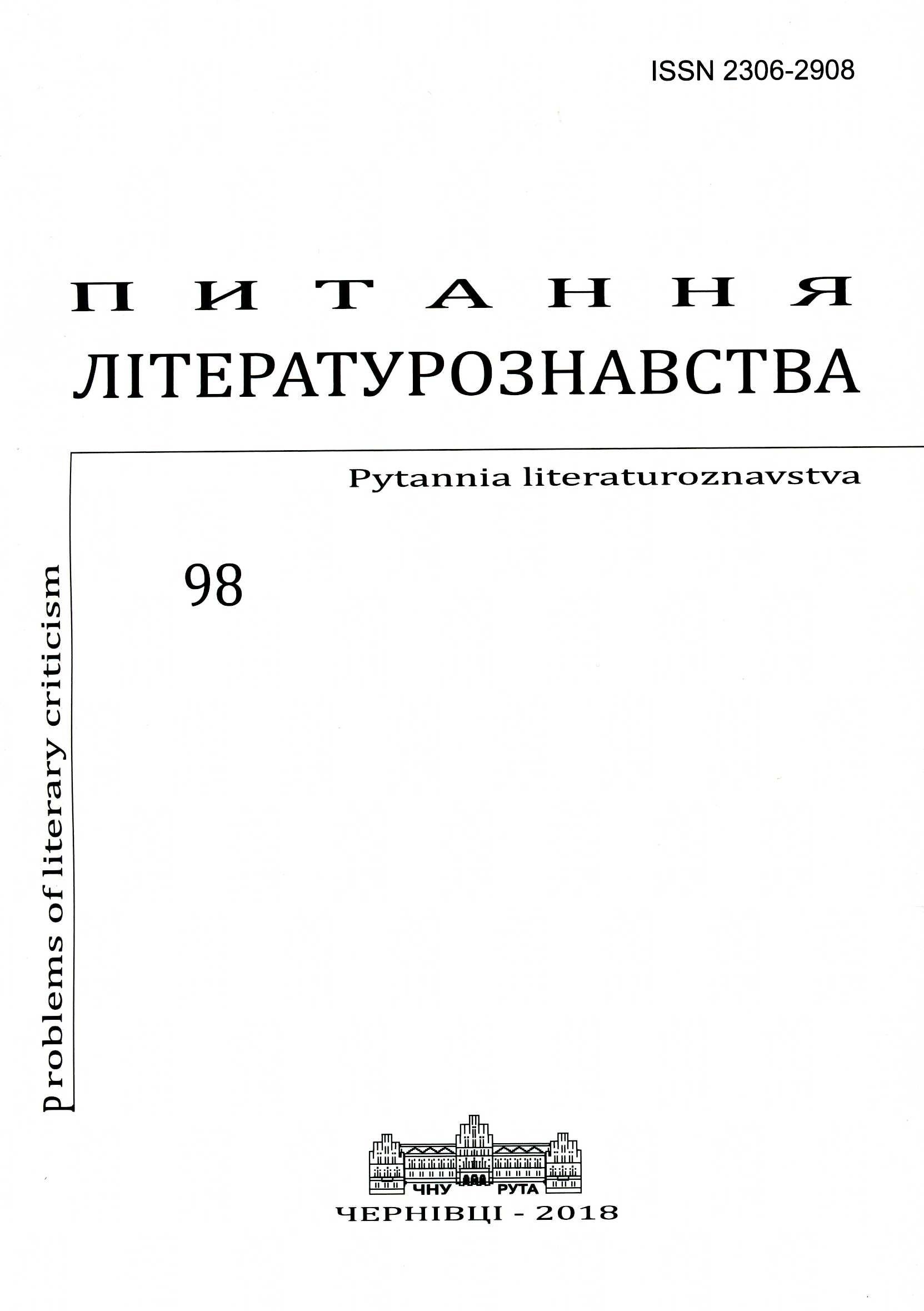“Український Достоєвський”, або Універсальний психологізм художньої прози Івана Франка: теорія і методологія дослідження
“Ukrainian Dostoyevsky”, or The Universal Psychologizm (Psychological Approach) of the Prose of Ivan Franko: Theory and Methodology
Author(s): Wang XiaoyuSubject(s): Studies of Literature, Ukrainian Literature
Published by: Чернівецький національний університет імені Юрія Федьковича
Keywords: universal psychology; psychoanalytic method; synthesizing ability; hero; essay; leitmotif; method of free associations; edipal situation; social compensation; complex of inferiority; fictitious teleol
Summary/Abstract: The article deals with the universal psychologizm of I. Franko's prose in terms of the theory and methodology. The researches of Franko hearitage (A. Krymsky, S. Yefremov, O. Biletsky, M. Vozniak, Y. Yankovsky, I. Denysiuk, M. Ilnytsky, M. Tkachuk, Y. Melnyk, T. Hundorova, M. Hnatiuk, S. Pavlychko N. Zborovska, A. Shvets, R. Holod, B. Tycholoz, etc.) revealed on a different historical stage of the study the whole range of problems with a unified understanding of the deep psychologizm of Franko’s fiction . They made a conclusion that the creative method of Kamenyar is analytical-synthetic, multidimensional and it cannot be clearly defined. This peculiarity of I. Franko's creativity is quite natural. That is a result of difficulties to find general complex of psychological features and original artistic works during late nineteenth and early twentieth century. The concept of the interrelationship between artistic anthropology and literary methodology is connected with the problem of evolutionary consciousness of the entire culture of the twentieth century, or rather cased by the whole artistic life with its attempt to find its own form of expression.This background caused the methodological options – the psychoanalytic method and the typological characteristic based on comparison with F. Dostoevsky’s prose. This type of research is possible to make, while analyzing I. Franko works as “Motherland” (“Bat’kivshchyna”)’, “Boa Constrictor”, “The Blackthorn in the leg” (“Teren u nozi”), “How Yura Shikmaniuk waded Cheremosh” (“Yak Yura Shykmaniuk briv Cheremosh” etc. It is possible to notice that the artistic and scientific model (for example, “From the Secrets of Poetic Creativity”) of writer’s thinking is close to the psychoanalytic ones, such as the method of free association of S. Freud, the theory of personality of A. Adler, the existential therapy of V. Frankl, the humanistic psychology of E. Fromm. The approaches, made by I. Franko are – to some extent – ahead of listed methods. In fact – according to G. F. F. Hegel, the method is a theory, reversed to practice.We made a conclusion that the psychoanalytic method of studying I. Franko's artistic prose opens the perspective of a dialectical understanding of the synthesis of the artist's creativity, in addition to the socio-historical, poetic horizons, and psychologically-comparative measurements in a heterogeneous cultural and paradigm of the West and the East. This also applies to the comparative characteristics of the work of the Ukrainian artist with the new Chinese literature (现代 文学).
Journal: Питання літературознавства
- Issue Year: 2018
- Issue No: 98
- Page Range: 283-300
- Page Count: 18
- Language: Ukrainian

